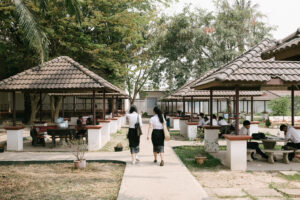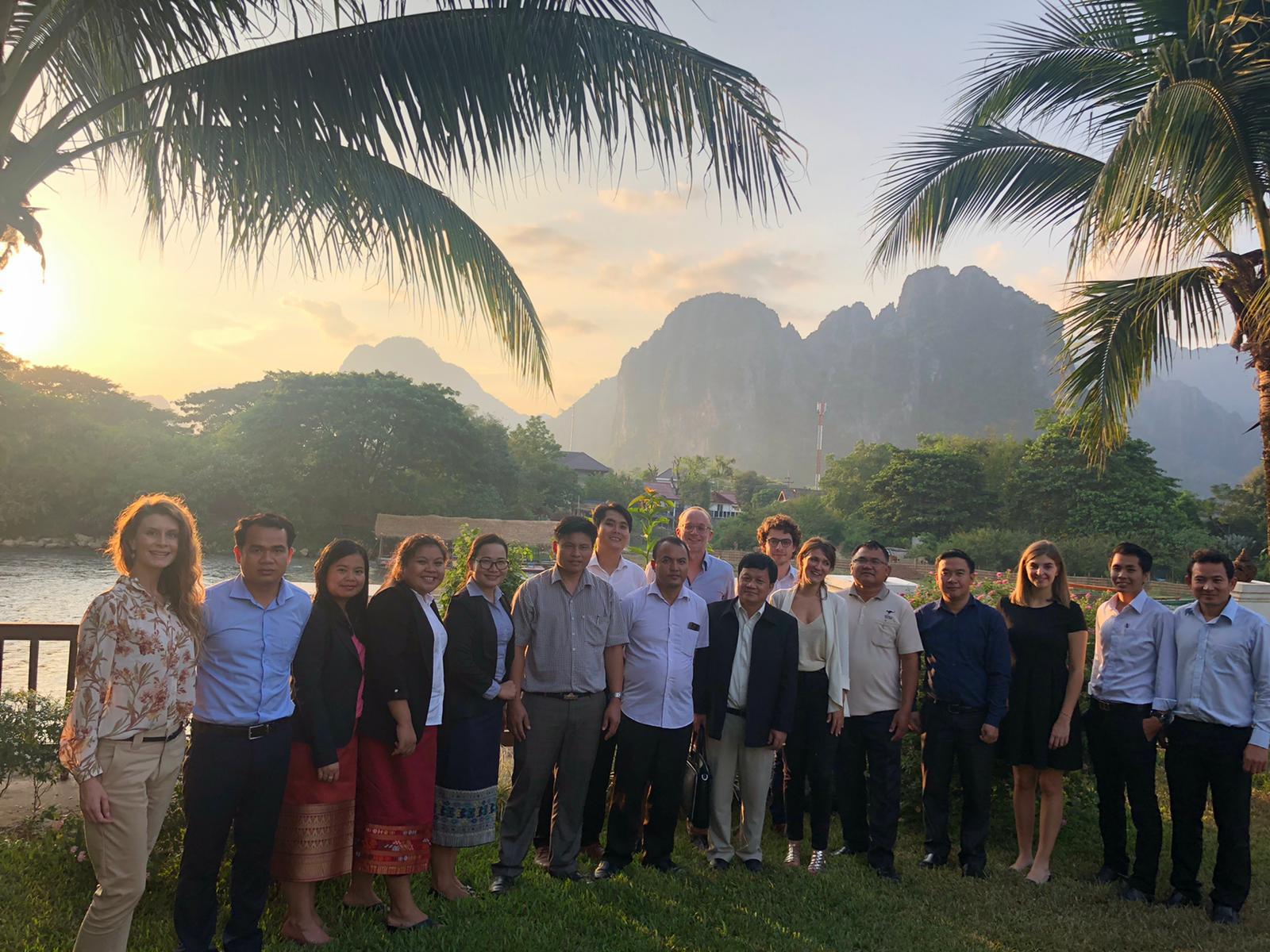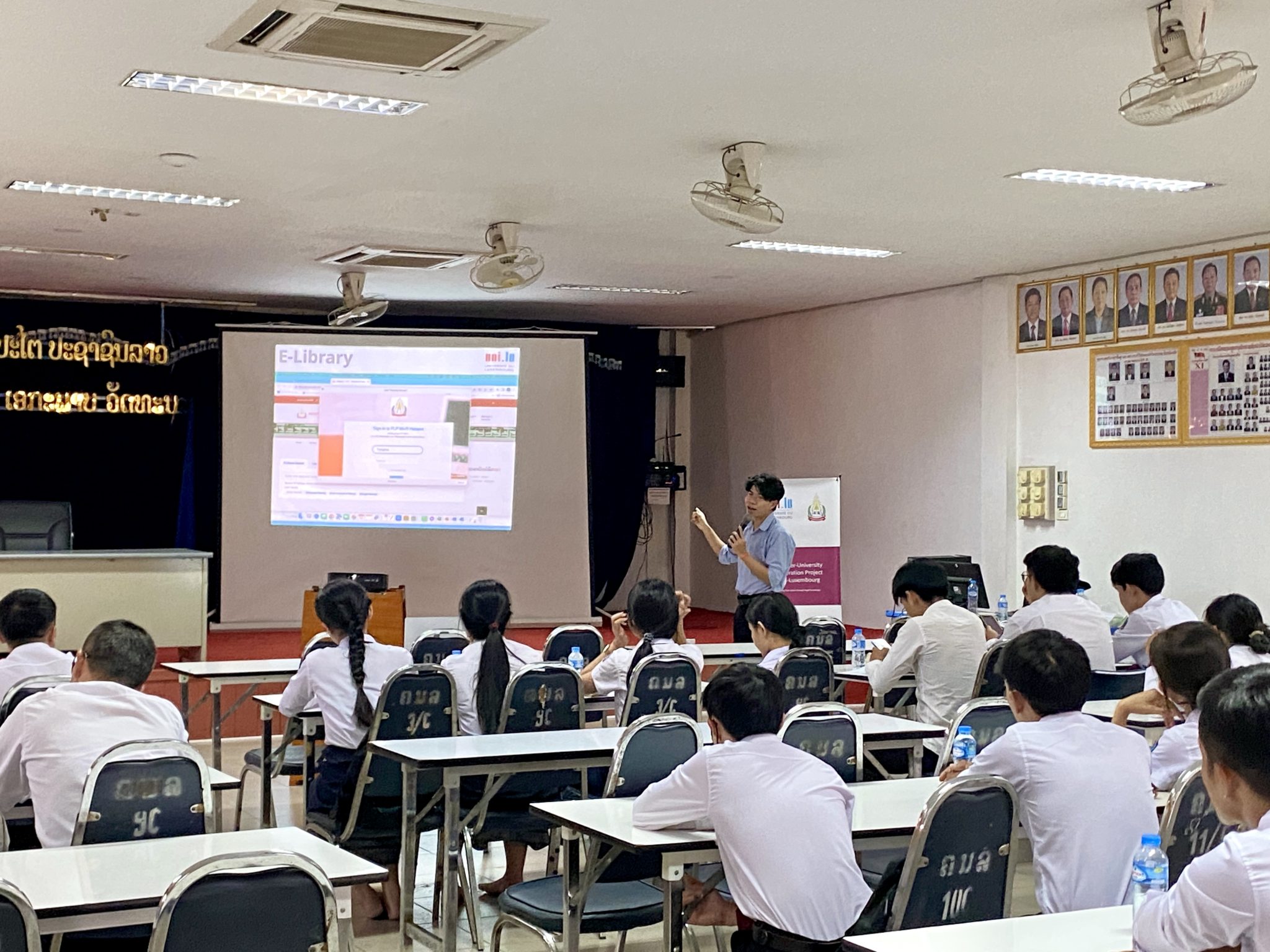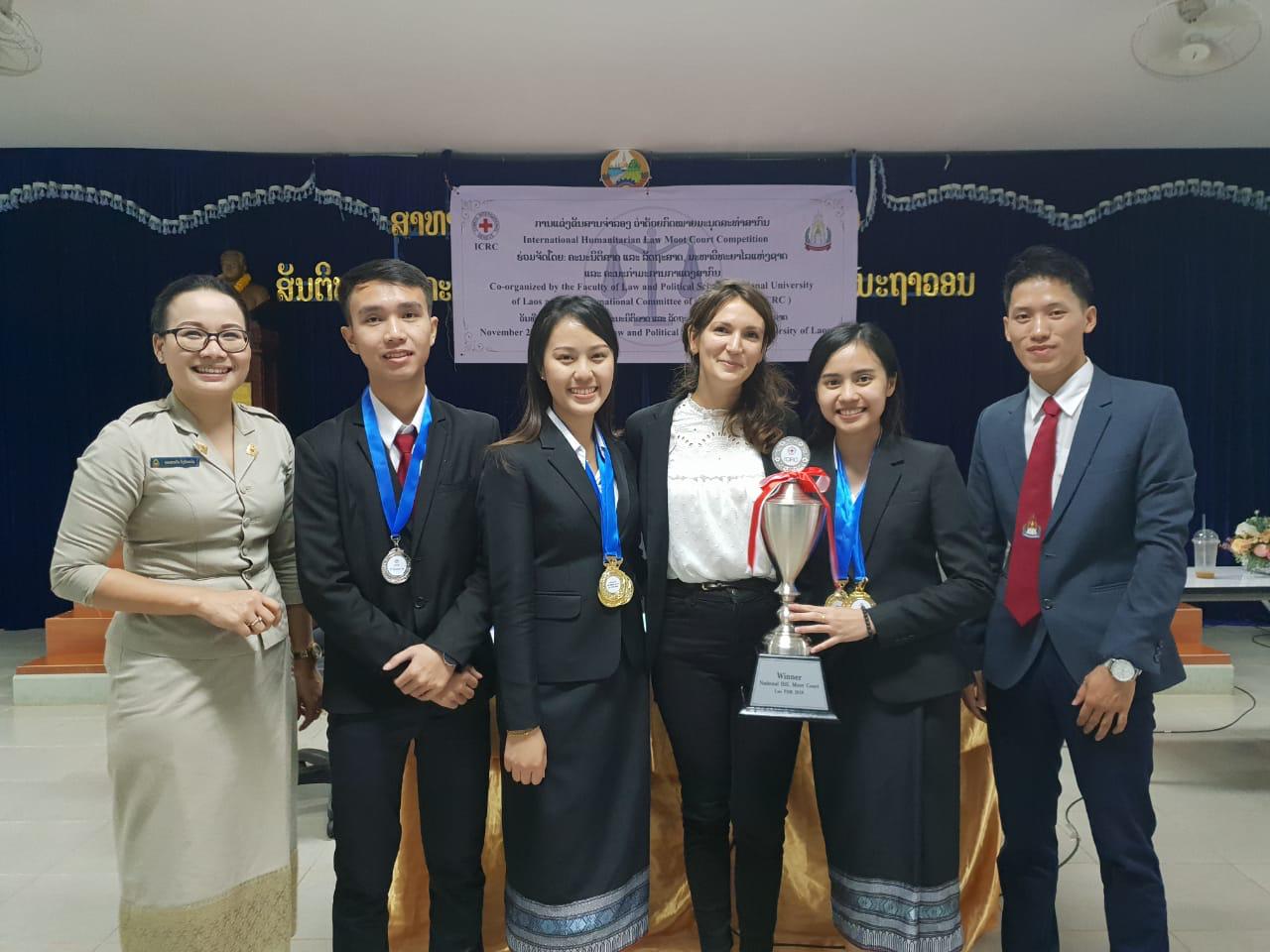We are in 2014. Stefan Braum, professor for international and criminal law, is invited by Luxembourg’s cooperation agency LuxDev to help guide the creation of a rule of law state in the Lao People’s Democratic Republic (Lao PDR), by partnering with the National University in Vientiane. The project is rooted in Luxembourg’s ambition to promote coherent processes of economic, social and environmental sustainability in the global south.
Fast forward to spring 2024. In ten years’ time, dialogue, research and education have achieved promising and unique results. To further the programme and document methods and results, Prof. Braum has recently obtained funding from the FNR LuxAid Bridges scheme.
We take a walk down memory lane to review what has been achieved in ten years.
Let’s start with a quick user guide of a rule of law
Stefan Braum: Rule of law can be broadly understood as the control of arbitrary power by subordinating it to established laws. Rule of law provides a normative umbrella that protects civil and fundamental rights, a fair judicial system and holds political power accountable. One key element are the institutions of democratically elected legislative and executive branches and an independent judiciary. The other essential element in a rule of law state as we see it, is the right to protect civil liberties and fundamental rights, based on a catalogue of civil rights.
Democracies in Europe and most Western societies are built on the foundation that political power can only be legitimate if it is based on the principles of rule of law.
So this is a very European perception.
In Europe, political and social developments have fuelled a demand by society to control political power, and that shaped the development of rule of law states. Countries of the global south are characterised by their own societal framework, political developments and cultural identities.
Even in 2014, we saw significant shortcomings in the way Western models of rule of law had been implemented in other settings. This model was applied to these societies in countries like Afghanistan or Mali for instance, but this abstract blueprint is unrelated to their realities and mostly trimmed to fit requirements of international evaluation procedures. The countries had little choice in the making, and the results are too often failing democratic institutions. From the beginning of our programme, the objective was sustainable societal development, that Laos will be able to lead the transition to a rule of law state. It was clear that we had to think differently. We had to actually question the validity, format and material of rule of law principles to better reestablish them.
So that was our big question: How is it possible to anchor this model of the democratic constitutional state in social and cultural contexts that are fundamentally different from Western societies? What are the circumstances, the conditions and the conception that will make the process acceptable? And where to start to create a coherent legal framework?
What were the challenges and opportunities for Laos?
We benefitted from Luxembourg’s positive relationship with Laos, as well the country’s commitment to sustainable societal development. In Laos, the context was so different from what we are used to, because Lao history, religion and law are based on oral tradition. The was no written, codified law, no catalogue of rights or rules. This was completely new territory, as much for us as for our Lao students and collaborators. Another issue was access to free resources for students and researchers, such as legal corpus from other countries and scientific articles. So the challenges were considerable, but there was a political will to work with us.
How did you start?
Our hypothesis is that the cross-cultural dialogue and a bottom-up approach will achieve a real impact on good governance transition. As a university, our tools are research and teaching, so we proposed a threefold method: first, dialogue to establish the state’s priorities in lawmaking, second, teaching the teachers and third, research fellowships who would focus on these priorities in law.
Our former PhD students Heleen De Geest and Perrine Simon were recruited as Liaison officer in Vientiane. They both did a great job, particularly in establishing good relationships with regional researchers and in building trust in our bottom-up approach.
Our team looked at principles that we perceive as constitutive of a rule of law state, and how these can be adopted in Lao culture. Legal areas of importance for Laos are social justice, institutional transparency and accountability, and quite prominently, there is interest to legislate on the protection of the environment. As an economy that is much based on hydropower and agriculture, Laos has long suffered from the inability to protect its natural resources from exploitation by foreign investors. In this power game, Lao legislators are powerless, and citizens in rural areas are unprotected against unlawful expropriation, resettlement and human trafficking.
The second phase was more hands-on. Our goal is to build local know-how, through education and research at the National University, so that Lao legislators can develop a corpus of law for the protection of environmental, social and political interests.
What happened in teaching and research?
When we started in 2014, the National University did not offer any legal education or research. Teachers in law were only few and they had only very basic training. Our goal was to shift the balance, and indeed today there are more teachers with higher degrees and experience.
The programme began to organise regular courses by our own professors in private, commercial, labour, tax and criminal law. There are summer and winter schools every year and we have also set up moot courts so that law students get to sharpen their skills. Students and researchers can register for a workshop on how to apply for research grants, and benefit from support for scientific publications or research proposals. At our Faculty of Law, Economics and Finance, we have initiated joint research projects of relevance for Lao PDR with the Lao students coming to Luxembourg as research fellows. One fellow worked on corruption issues, one on equal rights for women and men, one on fair trial procedures and yet another one on state responsibility for violating civil rights.
The wheel is in motion: step by step, their output is enriching the political dialogue in Laos, and their students are graduating with greater skills.
Can you name a couple of milestones?
In the second phase of the programme, we set up an e-library for legal studies. One does not establish a legal library on the click of a finger, especially not in a country in which information is tightly controlled. Having achieved this free access for students to resources of their choice is by itself a commitment to a key democratic principle, and a big step towards raising the expertise and quality of research. It is an ongoing effort, as we are still training young researchers in using this resource.
A major achievement is that the University has welcomed its first Lao law PhD, Pangthong, with a fellowship by the Ministry of Foreign Affairs and Cooperation. The progress he is making is huge. He is a great example that years of collaborative efforts have paid off and that other PhDs will follow.
Another dimension is the ongoing development of trust. Difficult to measure, but essential and very palpable. Initial reluctance has given way to eye-to-eye dialogue, doors have been opened to political levels that have made it possible to further develop the programme. This is perhaps one of the most important take-aways for future programmes of this sort.
Future
We are working on developing what we call legal clinic at the National University. At Uni.lu we have the Clinique du droit, in which Master’s students work on real law enquiries with their professor and provide ‘pro bono’ legal advice to citizens, always under the guidance of their professor. This is a great method of practical teaching. Providing this clinical legal education in Laos will be a huge step not only for education but also for access to justice because it will help the most vulnerable, those that cannot afford lawyers or barely know that there are laws to protect them.
During the third phase of the programme, which will now be complemented by the FNR funding of our project “LawMode”, we will use the data, results and reporting to publish this information and promote it to other law and policy makers.
Learn more
- The project activities are presented on cooperationlaos.uni.lu
- The Uni.lu Clinique du droit



